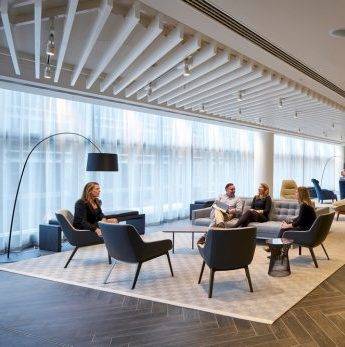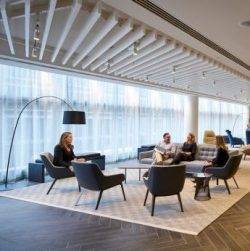June 12, 2018
Lack of emotional intelligence greater impediment to staff engagement than AI

A new Gallup report reveals the growth of AI is not seen as a disadvantage for employees. The real problem is lack of emotional intelligence in management, with managers failing to move beyond the role of “task manager” and adopt the coaching perspective they need in order to future proof the workforce. The Real Future of Work study interviewed 4,000 working adults in the UK, France, Germany and Spain to understand how employees are being managed and the subsequent impact this might have on the future. Worryingly, one in four UK employees say they only receive performance feedback from their manager once a year or less, a further 20 percent claim it’s only a “few times a year”. Almost one in five (19 percent) UK workers predict technology will increase the risk of losing their job – the highest in the European countries surveyed and more than double those concerned in Spain. When asked how technological changes will influence work in the next three years, seven out of ten workers in the UK felt it will increase their productivity followed by France (66 percent), Spain (51 percent) and Germany (37 percent).







 A major research study “
A major research study “
 Business Secretary Greg Clark proposed new laws in Parliament yesterday (June 11th) that new large firms will have to justify their chief executives’ salaries and reveal the gap to their average UK worker. It means that for the first time, UK listed companies with more than 250 UK employees will have to disclose and explain this difference – known as ‘pay ratios’ – every year. However, according to data published today by the Chartered Management Institute (CMI) and
Business Secretary Greg Clark proposed new laws in Parliament yesterday (June 11th) that new large firms will have to justify their chief executives’ salaries and reveal the gap to their average UK worker. It means that for the first time, UK listed companies with more than 250 UK employees will have to disclose and explain this difference – known as ‘pay ratios’ – every year. However, according to data published today by the Chartered Management Institute (CMI) and 








 Eight in ten workers use their personal smartphones for work purposes to make their jobs easier as almost half report wasting 10 minutes per hour in their working day due to their employers’ ineffective technology. According to the
Eight in ten workers use their personal smartphones for work purposes to make their jobs easier as almost half report wasting 10 minutes per hour in their working day due to their employers’ ineffective technology. According to the 












May 30, 2018
Australia is leading the world in the adoption of activity based working
by Max Luff • Comment, Flexible working, Workplace design
(more…)